This website uses cookies so that we can provide you with the best user experience possible. Cookie information is stored in your browser and performs functions such as recognising you when you return to our website and helping our team to understand which sections of the website you find most interesting and useful.
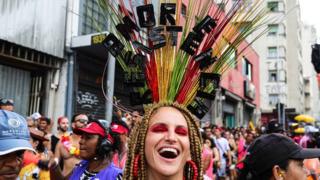
São Paulo was always thought of as Rio de Janeiro's boring cousin during carnival. The city that people used to leave to go and have some fun.
But this year, Brazil's biggest city is home to the largest number of street parties, or blocos. There are 870 in all, starting before carnival this weekend and carrying on afterwards. That compares with 384 in Rio.
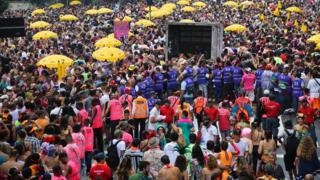
The growth in São Paulo's carnival has come about with the support of the city's authorities. They've introduced regulations in recent years to encourage street parties and provided infrastructure to allow them to happen.
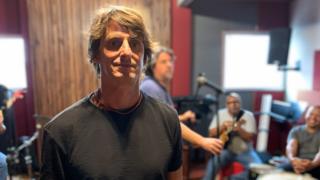
"There was a time when they used to say the street was a place just for cars and we said, 'No it isn't, the street is a place for people'," says Ale Natacci, the President of Associação Cultural Acadêmicos do Baixo Augusta bloco - the biggest in São Paulo.
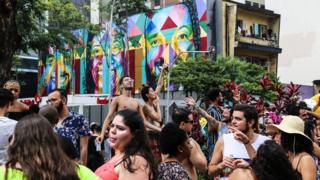
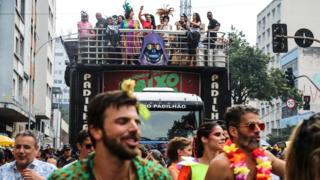
The Acadêmicos do Baixo Augusta bloco was one of the first. It started off as a bit of fun between friends but every year it's grown. It's estimated a million people turned up last Sunday.
And it's paid off.
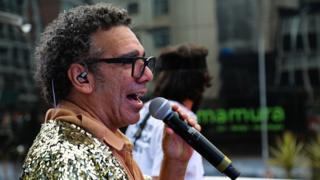
"It is big business, people come to Sao Paulo, stay in hotels, go to restaurants, get to know the city," says singer Wilson Simoninha, another of the bloco's founders.
"The city understood that if it was organised, it could earn more, in addition to being able to show our culture and bring free entertainment to people," he says. "We get private sponsors, no government sponsorship, everything is private. We can make this party beautiful."
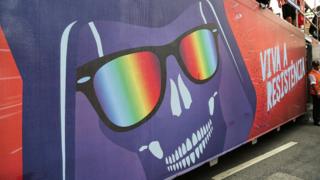
Every year there's a theme - it's a very activist bloco. This year's theme is "long live resistance".
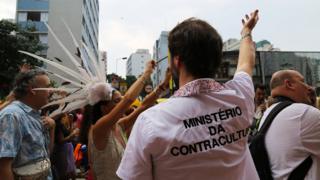
"This year, the theme was easy, it was a gift," says Ale, referring to accusations of censorship by Jair Bolsonaro's government.
"Culture is being marginalised and we thought it was important to say no, culture is very important, it creates jobs. Carnival is culture, it is democracy, so we come to speak in favour of democracy, freedom of expression and culture."
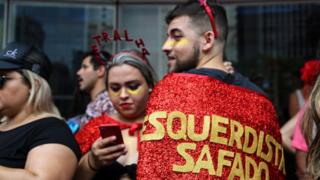
People dress up for the street parties and this year's theme saw people don political outfits, sending up the right-wing government.
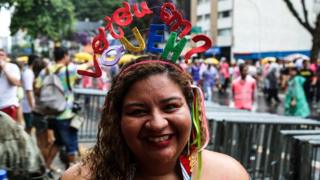
Carolina Lazameth is a teacher from Macapa (Amazon) and she wore a headband with the phrase 'Who did you vote for?'
"The government in power has made serious attacks towards culture. For me carnival is as much protest as political act," she says.
"I see my body as a political act. So I think it's important in making fun, that anyone who comes up to me knows who I voted for so there's no surprises."
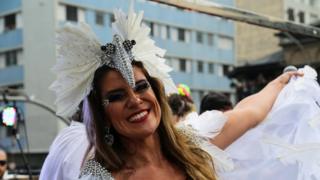
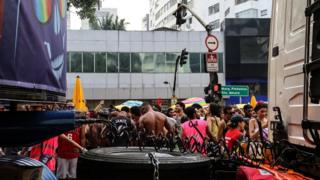
Of the carnival's importance, Simoninha is in no doubt.
"There is no more powerful weapon to fight against any of these injustices or these angry manifestations than love and joy," he says. "Carnival belongs to everyone. To children, to liberals, to conservatives."
All photos subject to copyright.



 Africana55 Radio
Africana55 Radio 
